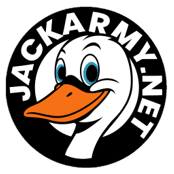In the run-up to the game with Belgium, much of the media speculation was on the performance of Ryan Giggs. He had arrived on the scene with some spectacular performances for Manchester United -he was already Wales’s youngest international, making his debut at 17 years of age. The media were constantly harping on that the move to international standard was too much for such a young talent. International defenders would soon put him in his place. Terry Yorath did not allow Giggs to talk to the media, although one suspects this was on the instructions of Alex Ferguson.
The Belgium game would be Giggs’s sixth international and he had yet to find the net. Well, ‘cometh the hour, cometh the man’. Eighteen minutes into the game, we were awarded a free-kick. You could sense the anticipation as Giggs placed the ball. Very few players have this ability, to excite a crowd by their very presence. He is a rare and exceptional talent.
His free-kick will be remembered for ever by those fortunate enough to witness it. Even the Belgian supporters felt they had to applaud. Ian Rush scored a second before half-time. Belgium were always second best on the night and Wales proved that they had the players who could cope on the big stage and who would provide a result when it mattered most. The dream of America was alive again.
Wales faced two games away from home following the performance against Belgium. In April 1993 they travelled to Ostrava to meet the RCS, the representatives of the Czech and Slovakia Republics. Because this was the last competition in which they would take part as a combined team, it was always difficult to gauge their form. As the country was dividing, it was hoped that the players would look for-ward to international careers with their respective countries and that the combined team would just play out the fixtures. Wales could not have hoped for a better start when Mark Hughes opened the scoring after 29 minutes, but the joy was short-lived when Latal equalised nine minutes later. That was how the match finished. But Wales must have looked upon the result as points lost for they were much the more positive side and were denied by some resolute defending by the RCS.
The final away fixture was in Toftir, the Faroe Is lands, on June 6th 1993. The usual media nonsense about the islanders abounded the famous bobble hat was back and, of course, plenty of references to sheep. A major issue never given much mention was that this fixture came at the end of a very long season for the Welsh players. It was out of season really, and possibly not the best decision taken by the Welsh FA when they sat down to agree the fixture lists. Again, it was a no-win situation for Wales. Despite the fixture being out of season and being played on a different surface, Wales’s Dean Saunders opened the scoring after 23 minutes with Young and Rush adding to the scoreline. A comfortable win was achieved and, in truth, Wales were never in any danger.
So, as this group closed down for the summer, Wales could be confident of progressing from the group. They now had nine points, a similar total to Romania and the RCS. But Wales had the comfort of their final three games in the group being at home, which meant that the RCS and Romania would have to travel to Cardiff and get a result for USA 1994. Perhaps the Welsh FA had got it right when the fixture list was discussed: home advantage for the final three games would be crucial.
——————–
“Come on Cymru” and “Come on Cymru 2000” are available to order on-line from http://www.sigmapress.co.uk .
——————–
This article first appeared on JACKARMY.net.

